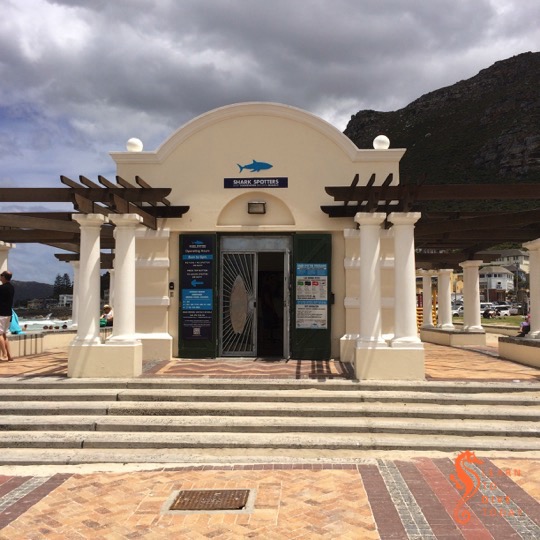
I had to write a short article about Shark Spotters a while ago, for the quarterly magazine of the company I work for. It was fun to write within the constraints of quite a punitive word count, and to try and emphasise the aspects of the program that I think are poorly understood by the public. Here’s the article:
Shark Spotters developed into Cape Town’s primary shark safety strategy out of two similar, informal initiatives. At Muizenberg and Fish Hoek in 2004, surfers arranged with lifeguards, car guards and trek fishermen to warn them when sharks were sighted. Today, Shark Spotters is a NPO funded primarily by the City of Cape Town, Save Our Seas Foundation, and public donations. It operates year-round at four beaches and during summer at another four. These are beaches that have both many water users and relatively common shark sightings.
A team of 30 spotters equipped with binoculars, polarising sunglasses and all-weather gear watch from the mountainside, and when a shark is sighted they notify colleagues at the beach to sound a siren and raise the appropriate flag. The flags indicate the current or recent presence of a shark, that spotting conditions are poor, or that it is safe to swim.
The spotters, all drawn from local communities, are trained in safety, first aid and shark behaviour. A further 10 team members deploy and retrieve the shark exclusion net at Fish Hoek beach during summer. Unlike the gill nets protecting beaches in KwaZulu Natal, this net does not catch sharks. It provides a physical barrier between sharks and swimmers. It is designed to be retrieved at the end of the day, or, to prevent entanglement, when there are marine mammals nearby. The Fish Hoek shark exclusion net is unique worldwide as an environmentally friendly shark attack mitigation measure.
It is the combination of favourable topography and surface-swimming sharks that makes Shark Spotters’ work possible and effective. The land around many of Cape Town’s beaches slopes steeply towards the sea, providing raised vantage points from which to spot. The sharks which pose the primary danger to water users, because of their size and curious natures, are great white sharks. Fortunately these sharks spend much time swimming on the surface, and their distinctive swimming style is readily recognisable.
Shark Spotters also conducts research on sharks to improve safety measures and provide management and conservation recommendations. As a result, the movements of great white sharks in False Bay are well understood. Sharks visit the beaches year-round, but with a distinct seasonal pattern. During winter the sharks congregate at Seal Island to feed on juvenile seals. During summer, sharks head for the backline of Cape Town’s beaches – probably to feed on the fish species found in False Bay at this time, and to rest in the highly oxygenated water close to shore. This is when they pose the greatest risk to water users.
Why support Shark Spotters?
I love the fact that Shark Spotters combines care for people with concern for the environment. The program takes a scientific stance backed by research, and has attracted worldwide recognition. It also provides training and employment for 40 residents of some of Cape Town’s most impoverished communities. I sit on the non-executive committee as a representative of Cape Town’s scuba diving community, and it’s a privilege to work with fellow water users and ocean lovers, and hopefully to provide a benefit to the greater community through our small contribution.
For more information, visit www.sharkspotters.org.za.
(Of course, lately white shark movements in False Bay are slightly less well understood than they have been, probably thanks to a pair of orcas whose irregular visits to Seal Island and Millers Point to hunt white sharks and sevengills seem to clear out the neighbourhood a bit! Fear not, Shark Spotters’ research is aiming to understand these changes, too.)








